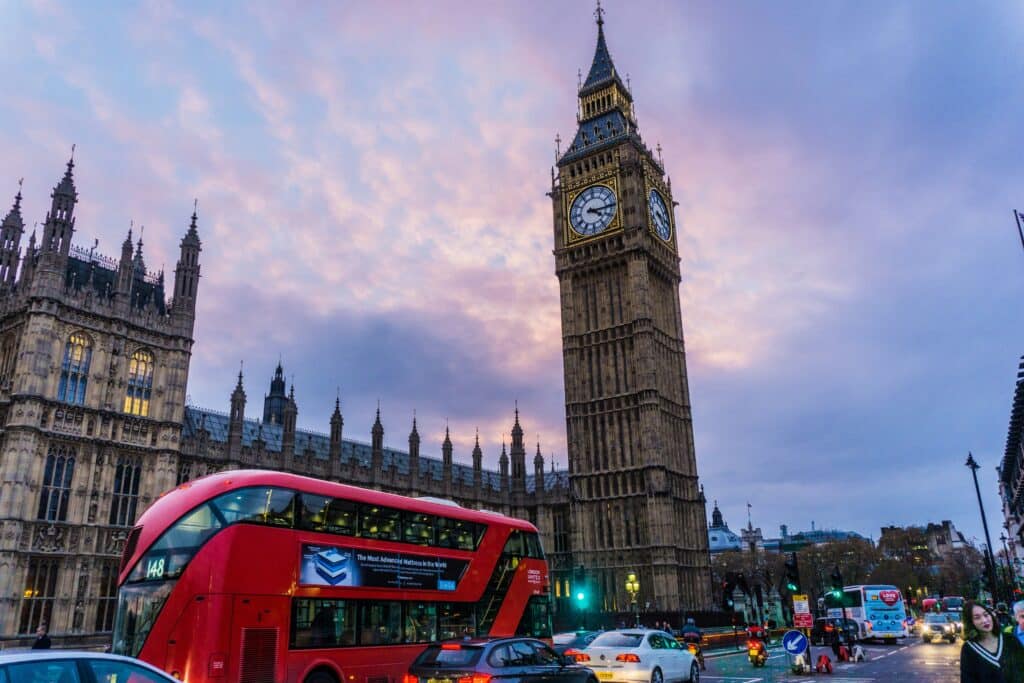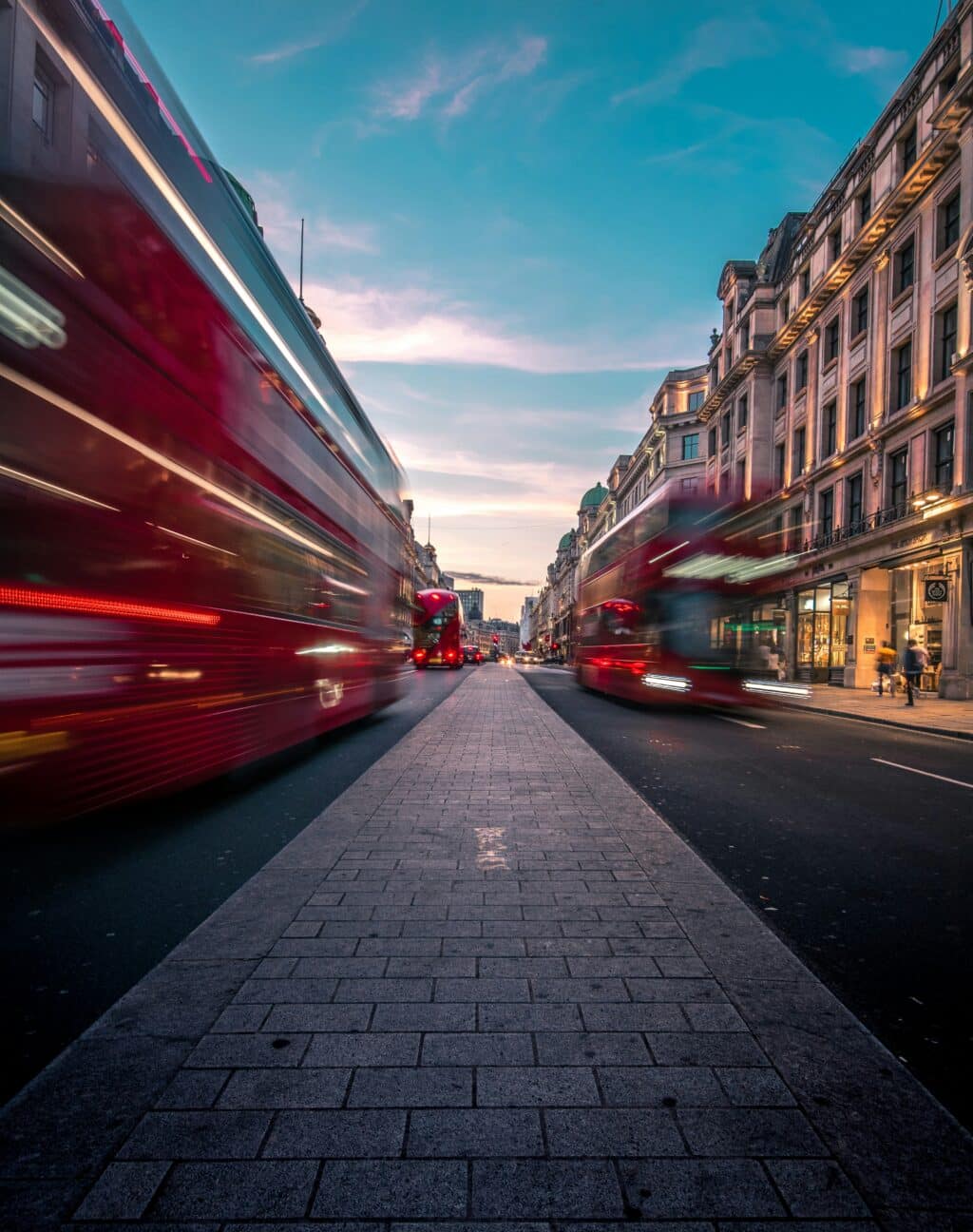London, the bustling capital of England, is grappling with a concerning environmental situation. Air quality levels have reached their lowest in six years, raising alarms among environmental activists, health advocates, policymakers, and citizens alike. But what has led us to this point, and what can be done about it?
IMAGE: UNSPLASH
London’s Air Quality Crisis
London faced its most severe air pollution crisis since January 2017, with its southwestern suburbs bearing the brunt. Analysis of emission chemicals revealed that domestic wood and solid fuel burning contributed significantly, accounting for 60 to 70% of soot particles.
In 2022, Air Quality News highlighted a surge in online searches for wood-burning stoves and log sales as citizens sought alternatives to soaring energy costs, exacerbated by the broader cost of living crisis.
Food price inflation has soared to 16.7%, the highest since Kantar started tracking data in 2008, underscoring the growing financial strain on households.
Factors Contributing To Poor Air Quality
Air pollution is a complex issue influenced by various factors, including traffic emissions, industrial activity, and even weather conditions. London is well-known for its dense traffic, and diesel vehicles contribute significantly to pollution. Despite efforts to transition to greener options, the lingering effects of high-emission vehicles are still evident.
The infamous Dieselgate scandal, where vehicles were found to emit more nitrogen oxide than officially stated, has further compromised trust in the automotive industry. This scandal highlighted the discrepancies between real-world emissions and lab test results, worsening London’s pollution woes.
Exposés about BMW, Volkswagen, Renault, and Peugeot emissions made headlines. Dieselgate was a watershed moment that brought global attention to the dire effects of diesel emissions on the environment and public health.
Governments and regulatory bodies have tightened emissions testing and standards in this scandal’s wake. Additionally, the public’s trust in diesel cars has waned, bolstered by a wave of diesel emission claims and growing environmental awareness.
The repercussions of Dieselgate are still felt today as they mould the conversation around air quality and eco-friendly vehicles.
Health Implications For Londoners
Poor air quality doesn’t only affect the environment; it has serious ramifications for human health as well. Increased pollution levels are known to worsen respiratory conditions, potentially elevate blood pressure among teenagers, and even lead to long-term cardiovascular problems.
Vulnerable groups, such as children, the elderly, and those with pre-existing health conditions, are especially at risk. The socio-economic impact also can’t be ignored as those in areas with lower air quality often experience higher medical expenses and disruptions to daily living.
Measures Taken By The Government
The UK government and city officials are actively working on measures to mitigate pollution levels. The Ultra Low Emission Zone (ULEZ) expansion is one such measure aimed at discouraging the use of high-emission vehicles within central London.
Mayor Sadiq Khan has been at the forefront, advocating for more stringent policies and greater investment in public transport and cycling infrastructure.
The Role Of Public Awareness
Public awareness is crucial in combating air pollution. The more informed the citizens are about the causes and effects of poor air quality, the more likely they are to support initiatives and adopt lifestyle changes that contribute to the solution.
Encouraging the use of electric vehicles, supporting public transportation, and understanding the health risks are essential steps.
Every individual has the power to make a difference. From reducing car usage by carpooling to using lower-emission means of transport, people can contribute in multiple ways. Advocating for change, participating in community-led clean-air initiatives, and staying informed about air quality measures can lead to significant improvements.
Diesel claims are also legal avenues where diesel car owners can seek compensation for their affected vehicles. More information can be found at https://www.emissions.co.uk.
The Ongoing Efforts For Clean Air
Innovative solutions are being sought to address the transportation aspect of air pollution. Electric and hybrid vehicles are becoming more accessible, and the push for green technology in public transportation is growing. As the city transitions towards these cleaner alternatives, the expectation is for air quality to subsequently improve.
Environmental groups are increasingly mobilising campaigns and movements to pressure governments and corporations to act responsibly. These groups are pivotal in advocating for change and ensuring accountability among key decision-makers.
Improving the air quality in London is an ongoing battle requiring multiple stakeholders’ committed efforts. Continuous monitoring, innovative solutions, and public engagement are key components in striving for cleaner air.
While progress may not be instantaneous, sustained efforts and adherence to environmental guidelines promise a future with healthier air for Londoners.
Bottom Line
London’s alarmingly low air quality underscores the urgent need for concerted action. The road to cleaner air involves everyone’s participation, from addressing the causes to implementing and following through on effective policies.
By understanding the severity of the issue and each person’s role, there is hope for restoring and maintaining clean air in London and setting an example for cities worldwide.
IMAGE: UNSPLASH
If you are interested in even more lifestyle-related articles and information from us here at Bit Rebels, then we have a lot to choose from.


COMMENTS